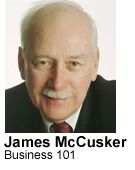 |
Secret’s
out: Business
leaders need mentors, too
 Both
fiction and fact remind us that we all have our secrets, some dark, some
purposeful and some just silly.
Both
fiction and fact remind us that we all have our secrets, some dark, some
purposeful and some just silly.
George Gershwin, America’s most enduringly popular composer, had a secret: he took piano lessons. That might not seem much of a secret for a musician, but it was for him.
Gershwin had cultivated an image of a natural musician, a cigar-smoking, wise-cracking guy whose gift for playing the piano was driven by jazz and by the rhythms of the New World — unconstrained by the tedious European rules and the drudgery of rote training.
Problems with the image arose when Gershwin expanded his horizons and began to move into serious music. As long as he had concentrated on writing popular songs, no one cared about his musical credentials or how he honed and shaped his obviously immense talent. It was when he successfully began to translate jazz into music played by a concert orchestra, beginning with “Rhapsody in Blue,” that the trouble began.
The more that Gershwin pursued serious music, the more the critics questioned where its form and orchestration came from. Much of this criticism was unfair, and undoubtedly made worse by so many musicians and music critics who had bought into the image that Gershwin himself had nourished.
Those who knew Gershwin well were aware of the gap between reality and the composer’s popular image. They also knew that he enjoyed his reputation as a musical iconoclast, even if it conflicted with the reality of his serious studies with some of the finest teachers and musicians of his time.
Gershwin tried to manage his two conflicting images, with some success. The American public loved his music and liked the idea of his showing up the stuffed shirts of the musical establishment. He was never able to convince the music world that he was a serious talent, though; that reputation would come only years after his untimely death.
Managers have their secrets, too, and they often struggle with the same sort of conflict that colliding images can create.
An example of this kind of conflict showed up recently when the CEO of a large, successful international firm revealed in an interview two aspects of his character. He said that he is at his best when he is on a team, but only if he is the captain of the team. Then he said that he wasn’t at his best when flying solo — he needed someone to guide him, a coach, a mentor.
From the first statement we see the classic “alpha” personality, someone who needs to be in charge, to be the leader. From the second, we see someone who seeks out and trusts someone else’s judgment over his own, someone following rather than leading.
This is very much like Gershwin’s conflict, where the rebel musician was taking instruction from the establishment tutors.
Unlike Gershwin’s situation, though, the CEO’s conflict does not involve public images that have to be cultivated, and it does not involve keeping information secret. Instead, it is an internal, personality conflict, which makes it easier to deal with.
Dealing with it involves simply getting our images straight. For many high-performing individuals, there is no apparent conflict in being a leader who seeks advice and counsel from others. In fact, there is no problem being a leader within a highly structured and disciplined organization.
In professional football, for example, the quarterback, almost invariably an “alpha” type, is the unquestioned leader on the field, but it is the coach who calls the plays. And yet even the coach doesn’t get to select who will be on the team.
In business, the way to balance leadership with a willingness to seek out advice is to avoid living up to the common, but inaccurate, image of ourselves. Entrepreneurs, CEOs and business managers are most frequently portrayed as lone wolves, people who listen and march to their own music.
In big corporations today, though, the lone, alpha wolf image is no longer dominant, and it is common practice for managers to seek out mentors and advisers. Unfortunately, this is an area where many small businesses are still behind the curve.
Part of the reason for this is structural; it is simply easier for managers in large corporations to find mentors. The larger reason, though, is that many of us in smaller businesses still enjoy the image, seeing ourselves as Gary Coopers and Clint Eastwoods — saving the day, alone.
It is time for us to give it up. Business today moves too fast for loners, and the way to success is to seek out mentors, coaches and counselors who will share their experience and wisdom with you. It’s not a secret anymore. It’s a sign of success.
James McCusker, a Bothell economist, educator and small-business consultant, writes “Your Business” in The Herald each Sunday. He can be reached by sending e-mail to otisrep@aol.com.
The
Marketplace
Heraldnet
The
Enterprise
Traffic
Update
Government/Biz Groups
© The Daily Herald Co., Everett, WA
